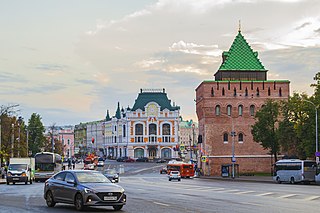
Nizhny Novgorod, colloquially shortened to Nizhny, from the 13th to the 17th century Novgorod of the Lower Land, known from 1932 to 1990 as Gorky, is the administrative centre of Nizhny Novgorod Oblast and the Volga Federal District in Russia. The city is located at the confluence of the Oka and the Volga rivers in Central Russia, with a population of over 1.2 million residents, up to roughly 1.7 million residents in the urban agglomeration. Nizhny Novgorod is the sixth-largest city in Russia, the second-most populous city on the Volga, as well as the Volga Federal District. It is an important economic, transportation, scientific, educational and cultural center in Russia and the vast Volga-Vyatka economic region, and is the main center of river tourism in Russia. In the historic part of the city there are many universities, theaters, museums and churches.

Nizhny Novgorod Oblast is a federal subject of Russia. Its administrative center is the city of Nizhny Novgorod. It has a population of 3,119,115 as of the 2021 Census. From 1932 to 1990 it was known as Gorky Oblast.

Yakov Mikhailovich Sverdlov was a Bolshevik Party administrator and chairman of the All-Russian Central Executive Committee from 1917 to 1919. He is sometimes regarded as the first head of state of the Soviet Union, although it was not established until 1922, three years after his death.
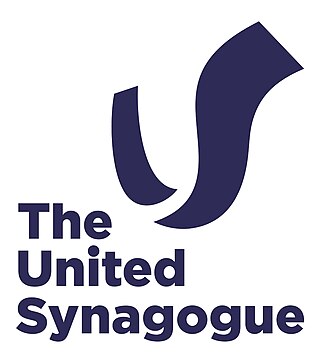
The United Synagogue (US) is a union of British Orthodox Jewish synagogues, representing the central Orthodox movement in Judaism. With 62 congregations, comprising 40,000 members, it is the largest synagogue body in Europe. The spiritual leader of the union is the Chief Rabbi of the United Hebrew Congregations of the Commonwealth – a title that bears some formal recognition by the Crown, even though his rabbinical authority is recognised by only slightly more than half of British Jews.

The Orthodox Union is one of the largest Orthodox Jewish organizations in the United States. Founded in 1898, the OU supports a network of synagogues, youth programs, Jewish and Religious Zionist advocacy programs, programs for the disabled, localized religious study programs, and international units with locations in Israel and formerly in Ukraine. The OU maintains a kosher certification service, whose circled-U hechsher symbol, U+24CAⓊ, is found on the labels of many kosher commercial and consumer food products.

Shlomo Dov Pinchas Lazar, better known as Berel Lazar, is an Orthodox, Chabad-Lubavitch Hasidic rabbi. He began his service in Russia in 1990. Known for his friendship with Vladimir Putin, since 2000, he has been a Chief Rabbi of Russia, and chairman of the Federation of Jewish Communities of Russia and Federation of Jewish Communities of the CIS. In September 2005 Lazar became a member of the Public Chamber of Russia. Because of his connections to Russian President Vladimir Putin he is sometimes called "Putin's rabbi."
Solomon F. Sopher is the president of the Baghdadi Jewish community in Mumbai, India. He also serves as the Trustee of the David Sassoon Fund, and as the chairman and managing director of Sir Jacob Sassoon Trust, which manages the Knesset Eliyahoo synagogues in Mumbai, as well as the Magen David and the Ohel David synagogues at Pune, India.
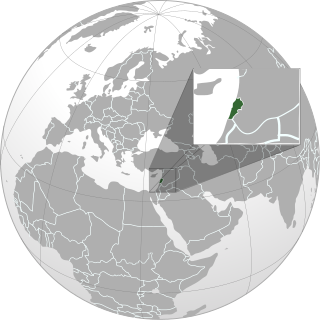
The history of the Jews in Lebanon encompasses the presence of Jews in present-day Lebanon stretching back to biblical times. While Jews have been present in Lebanon since ancient times, their numbers had dwindled during the Muslim era. Through the medieval ages, Jewish people often faced persecution, but retained their religious and cultural identity.

Jews were among the first settlers after Hong Kong became a British colony in 1841. The first Jews arrived in Hong Kong from various parts of the British Empire as merchants and colonial officials. Among the first wave, the Baghdadi Jews stood out especially, including representatives of the influential families of Sassoon and Kadoorie. The construction of the Ohel Leah Synagogue in 1901 marked the beginning of a fully fledged religious life for the city's local Jews.
Jewish music is the music and melodies of the Jewish people. There exist both traditions of religious music, as sung at the synagogue and domestic prayers, and of secular music, such as klezmer. While some elements of Jewish music may originate in biblical times, differences of rhythm and sound can be found among later Jewish communities that have been musically influenced by location. In the nineteenth century, religious reform led to composition of ecclesiastic music in the styles of classical music. At the same period, academics began to treat the topic in the light of ethnomusicology. Edwin Seroussi has written, "What is known as 'Jewish music' today is thus the result of complex historical processes". A number of modern Jewish composers have been aware of and influenced by the different traditions of Jewish music.
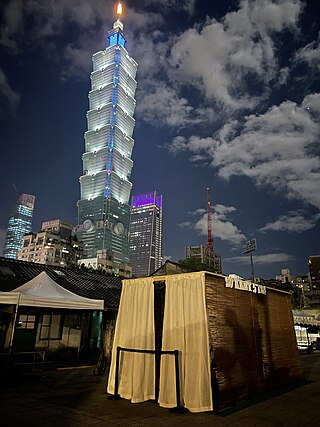
The History of the Jews in Taiwan, also known as Taiwanese Jews, refer to the Jewish community residing in Taiwan, a country located in East Asia. While the Jewish population in Taiwan is relatively small compared to other communities around the world, it has a rich and diverse history that spans several decades. The first sizable presence began in the 1950s, when religious services were held in the United States military chapel, to which civilians also had access.

Australian Jews, or Jewish Australians, are Jews who are Australian citizens or permanent residents of Australia. In the 2021 census there were 99,956 people whom identified Judaism as their religious affiliation and 29,113 Australians who identified as Jewish by ancestry, an increase from 97,355 and 25,716, respectively, from the 2016 census,. The actual number is almost certainly higher, because being a Jew is not just about being religious, but the census data is based on religious affiliation, so secular Jews often feel it would be inaccurate to answer with "Judaism". Also, since the question is optional, many practicing Holocaust survivors and Haredi Jews are believed to prefer not to disclose their religion in the census. By comparison, the Israeli newspaper Haaretz estimated a Jewish-Australian population of 120,000-150,000, while other estimates based on the death rate in the community estimate the size of the community as 250,000. Based on the census data, Jewish citizens make up about 0.4% of the Australian population. The Jewish community of Australia is composed mostly of Ashkenazi Jews, though there are Jews in Australia from many other traditions and levels of religious observance and participation in the Jewish community.
The Jewish Community of Nizhny Novgorod contains about 15,000 people. The synagogue within the community is at 5a Gruzinskaya Street.
Bromley Reform Synagogue is a synagogue in Shortlands, Bromley in the London Borough of Bromley; it serves the areas of south east London and north west Kent including Bromley, Beckenham, Orpington, Blackheath, Dartford, Maidstone, Sevenoaks, Tonbridge and Tunbridge Wells.

The Union of Jewish Religious Communities in Poland, is a religious association formed by Jews living in Poland who adhere to Judaism. It was originally created in 1949 as the Religious Association of Judaism, and renamed in 1992. The Association's seat is located in Warsaw, with seven administrative branches throughout the country. ZGWŻ consists of approximately 2,000 members (1998) congregating in nine municipalities. The Union operates seven active synagogues and 15 prayer houses. Also, ZGWŻ publishes its own periodicals, as well as the popular Jewish Calendar. Since 2003, the president of the Union is Piotr Kadlčik.

The Nizhny Novgorod Synagogue serves the Jewish community of the Russian city of Nizhny Novgorod, which currently numbers over 10,000 people. It is located at 5a Gruzinskaya Street.

Gennady Maksimovich Khodyrev is a Soviet and Russian statesman, former Governor of Nizhny Novgorod Oblast and the Minister for Antimonopoly Policy.

Vladimir Alexandrovich Panov is a Russian politician. He is the former Mayor of Nizhny Novgorod and a member of the State Duma. He has also served as the deputy chairman of the State Duma Committee for the Environment and Environmental Protection, chairman of the Nizhny Novgorod regional branch of Support Russia and as a member of the General Council of United Russia.
Beit Emanuel is a progressive synagogue located in Parktown, Johannesburg. The synagogue was established in 1954 and is one of the largest progressive Jewish congregations in South Africa. Israeli-born, Rabbi Sa'ar Shaked has been Beit Emanuel's congregational rabbi since 2013. It is an affiliate of the South African Union for Progressive Judaism (SAUPJ), which is part of the World Union for Progressive Judaism (WUPJ). Congregational rabbi, Shaked is currently involved in efforts to establish a Rabbinic Academy and Higher Education Institution in Gauteng.
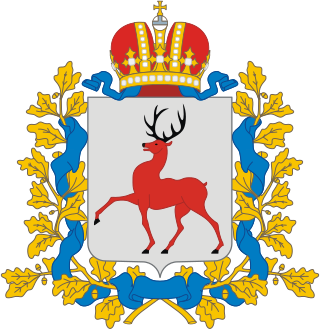
The Governor of Nizhny Novgorod Oblast is the head of Nizhny Novgorod Oblast.















